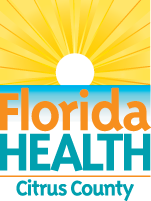Digestive health is not a comfortable topic for patients to talk about with their doctors, but these conditions are extremely common and need attention if they persist. They include GERD (gastroesophageal reflux disease), known as “acid reflux,” and chronic IBS (Irritable Bowel Syndrome).
GERD and IBS, both of which can be managed through dietary and other lifestyle changes, are the most common reasons Americans are referred to gastroenterologists, doctors who specialize in disorders of the digestive system. More U.S. adults than ever are having acid reflux symptoms, which include heartburn — that burning pain or discomfort that can crawl up your chest; regurgitation of stomach acid; bloating; and sometimes nausea after eating.
IBS can be challenging to diagnose, since the symptoms mimic those of other gastrointestinal disorders: diarrhea; constipation, abdominal bloating and gas; and abdominal discomfort or cramping.
Some issues can be serious and debilitating such as Crohn’s disease, an inflammatory bowel disease that causes chronic inflammation of the gastrointestinal tract. Crohn’s can cause abdominal pain, diarrhea, weight loss, anemia, and fatigue. Digestive health issues can also border on life-threatening, such as cases of colorectal cancer that need immediate attention. (March is National Colorectal Cancer Awareness Month.)
In the latest Baptist HealthTalk podcast and Resource Live
program, Jonathan Fialkow, M.D., hosted a panel of experts to talk
about digestive health, diet, screenings and when to see a doctor.
In the latest Baptist HealthTalk podcast and Resource Live program, Jonathan Fialkow, M.D., hosted a panel of experts to talk about digestive health, diet, screenings and when to see a doctor.
Among the panelists: Antonio Ucar, M.D., gastrointestinal oncologist at Miami Cancer Institute; Jose Estrada, M.D., a gastroenterologist affiliated with Baptist Health; and Lucette Talamas, a dietitian with Baptist Health’s Community Health.
“While it’s not exactly fun to talk about, millions of Americans suffer from chronic digestive diseases like IBS and Crohn’s disease, making them very common issues among adults,” said Dr. Fialkow. “And let’s not forget heartburn, which remains a scourge of society as a common GI complaint.”
Here are some excerpts from the podcast, which can be heard in its entirety here.
Dr. Fialkow: “What are the more common gastrointestinal conditions that you see or people experience, that lead them to see a doctor. What are the more common GI conditions that we see in the U.S.?”
Dr. Estrada:
“The main conditions that I see very frequently acid reflux, which obviously causes a lot of discomfort and it brings patients in to get treated. Abdominal bloating is also a very big complaint that people frequently present. I also see a lot of people coming in for abdominal pain, bladder issues or changes in their bowel habits, whether it’s constipation or diarrhea.
“We do a thorough physical exam and talk with the patient to get their medical history and exactly what’s going on. What are the exact complaints? That’s because a lot of things you can get just by what the patient is telling you. In terms of tests, there’s a battery of tests that we run, just basic labs.”
Dr. Fialkow: “We’re kicking off colorectal cancer awareness month. Let’s learn about risk factors when it comes to certain cancers like colorectal cancer. Are there certain things that make someone more susceptible? Are there certain lifestyle habits, which you [00:07:30] see, that can increase the risk of colorectal cancer?”
Dr. Ucar:
“Between the ages of 50 and 60 is when we start the risk of colorectal cancer jump. But another important risk factor: Personal or family history of not only colorectal cancer but polyps, which are the polyps that potentially can be premalignant. As far as habits that could increase the risk of colorectal cancer, processed meat or red meat in the diet. We recommend that patients reduce fats of animal origin in general.
“Other risk factors: A sedentary lifestyle, obesity, and smoking is a big one because it is also linked to many types of cancers. There’s also alcohol use and, of course, inflammatory bowel disease such as ulcerative colitis or Crohn’s disease. And those patients have an increased risk for colorectal cancer.”
Dr. Fialkow: “Let’s go back to heartburn, partly because it’s so ubiquitous and somewhat controllable. I know certain foods trigger heartburn. What are those foods? And do you find that by educating your patients about those foods, are they really able to control heartburn or prevent heartburn?
Ms. Talamas:
“The burning question. So, heartburn is a common symptom of GERD (gastroesophageal reflux disease). It’s very common but GERD can be managed through diet and lifestyle changes. It is very specific to the individual. So, we’ll get that cleared up right away. So, what’s going on with heartburn. So, between the esophagus and the stomach, there’s this little valve (esophageal sphincter). When that valve relaxes — there’s actually some foods that can cause the valve to relax — that causes the regurgitation of the stomach contents into the throat and that’s the burning feeling (heartburn). So, there’s different foods that can trigger either the valve to relax or foods that increase your gastric acidity. (Talk to your doctor about these foods.)”








